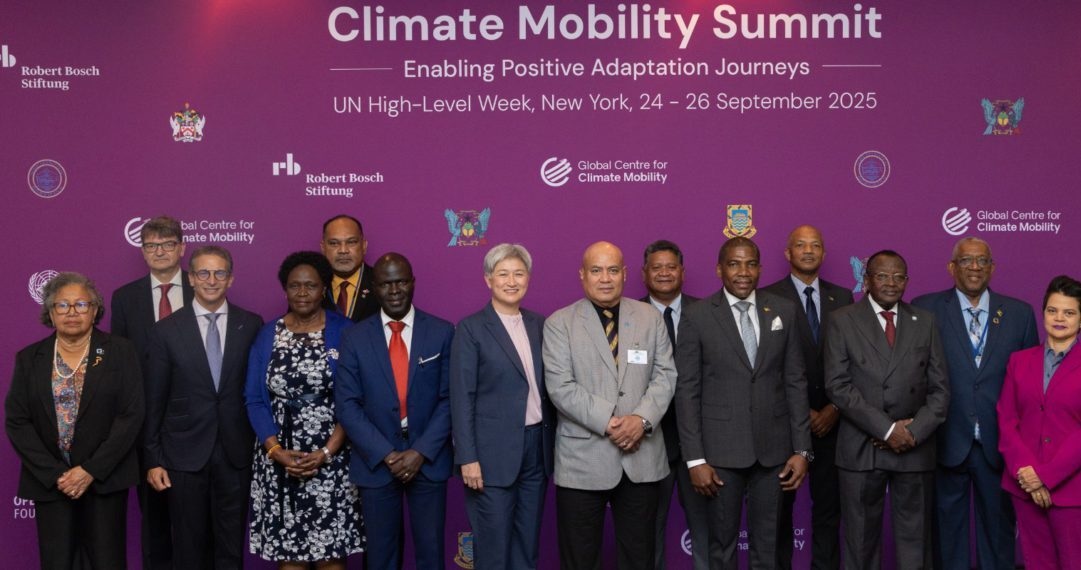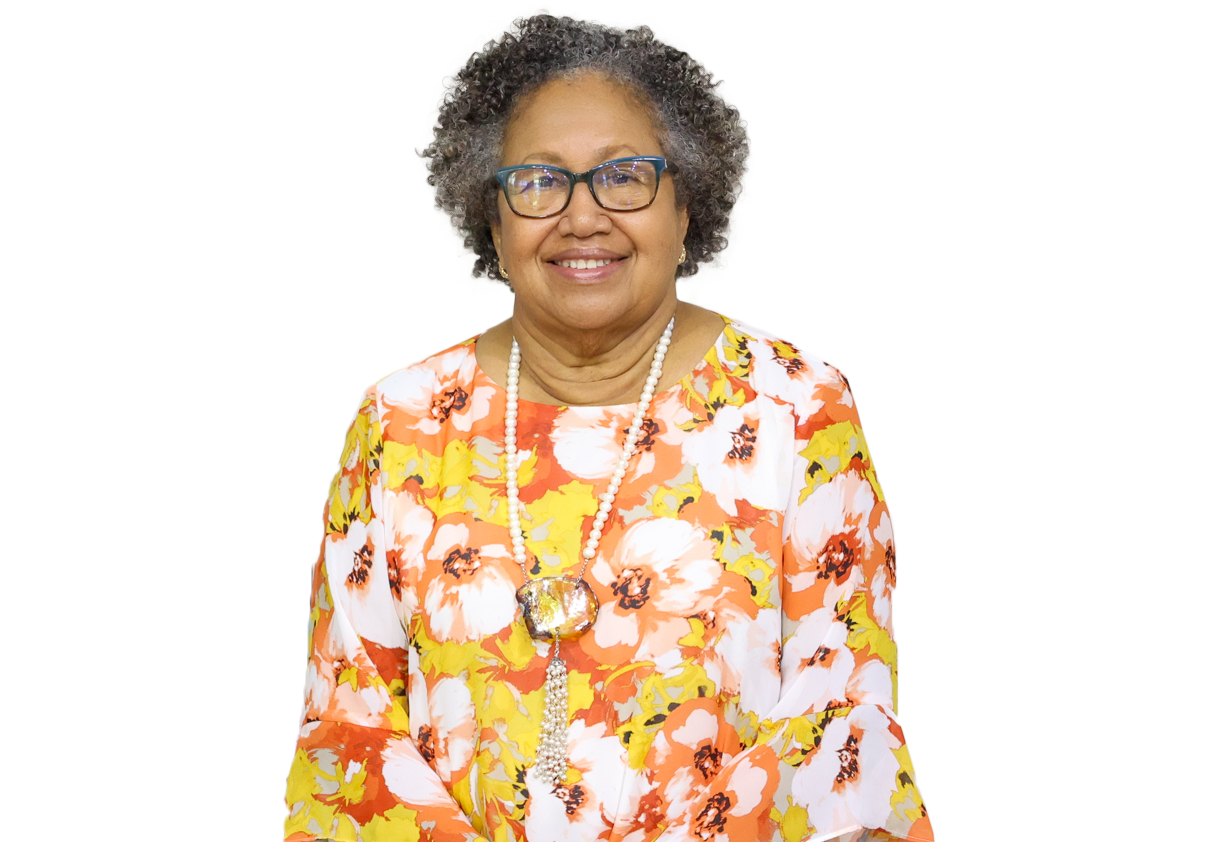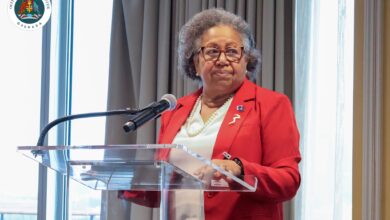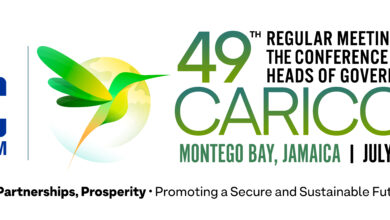“The way forward must include strengthened partnerships and a multi-stakeholder approach to address climate mobility. This means helping people to stay in their communities by addressing the environmental drivers, providing protection and humanitarian assistance for those who move, and facilitating well-managed mobility out of harm’s way.” – Dr. Carla Barnett, CARICOM Secretary-General

Dr. Carla Barnett, CARICOM Secretary-General, on Wednesday addressed a High-Level Breakfast of Climate Mobility Champions that was held under the theme ‘Harnessing Climate Mobility for Adaptation and Resilience’.
Please read her remarks below:
“Climate mobility is an increasingly urgent issue for Small Island and Low-Lying Coastal Developing States (SIDS). While I speak from the Caribbean experience, our challenges are shared by our brothers and sisters in the Pacific and Atlantic, Indian Ocean, and South China Seas (AIS) regions, where intensified storms and rising seas threaten not just lives and livelihoods, but the very continuity of nations.
In recent times, major hurricanes have dramatically altered the landscape, and impacted societies and economies in many CARICOM Member States, including Antigua and Barbuda, Barbados, Dominica, the Bahamas, Grenada, Jamaica, and St. Vincent and the Grenadines. In Guyana, projections show that sea level rise could put more than 80% of the population, concentrated along the low-lying coastal plain, at risk of displacement. In Belize, rising seas already threaten coastal communities and the tourism sector that is such an important contributor to the economy.
Over the past year, significant developments have brought climate justice and climate mobility to the forefront. The International Court of Justice (ICJ) delivered an historic advisory opinion, emphasizing that rising sea levels and the broader effects of climate change are an “urgent and existential threat”. This ruling affirmed the principle of statehood continuity, clarifying that the partial loss of territory due to sea-level rise does not automatically result in the loss of statehood.
This recognition is vital because the loss of territory cannot mean the loss of a people, a culture, or a nation’s identity. Tuvalu’s efforts to preserve its sovereignty through the Future Now Project and the Digital Nation State Program or Digital Tuvalu, ensure that even if their land is inundated, their statehood and heritage endure. Their determination echoes our own Caribbean conviction that mobility must never mean erasure.
The ICJ also recognised that climate change conditions may compel individuals to relocate, or prevent them from returning home, and underscored the duty of all States to cooperate in addressing these threats. The burden cannot fall on vulnerable nations alone; solidarity and shared responsibility are essential to protect people and preserve their futures.
COP29 marked a significant step with the agreement to operationalize the Loss and Damage Fund. While total pledges have reached over US$720 million, this figure represents a very small fraction of the needs of SIDS, which is estimated to exceed US$400 billion annually.
At COP29, SIDS leaders stressed the urgent need for equitable and streamlined access to climate finance. A major challenge remains for SIDS to secure adequate and predictable funding, with some of our nations requiring 3.4% of their GDP annually for adaptation, compared to 1.4% for other developing countries.
For our countries, the finance debate is not an abstract one. Without adequate finance, our adaptation gaps widen, livelihoods collapse, and mobility becomes forced rather than chosen. In the Caribbean, the costs are more than heavy. A 2021 Caribbean Development Bank study estimated that climate impacts could cost the region up to 10% of GDP annually by 2100. For countries like Dominica, which experienced losses estimated at 226% of its GDP from Hurricane Maria in 2017, rebuilding while preparing for future mobility pressures is a near-impossible fiscal task without scaled-up international support.
The failure of COP29 to prompt wealthier nations to increase their support has led SIDS to accelerate exploration of alternative financing avenues. In CARICOM, the Bridgetown Initiative 3.0, endorsed by all CARICOM Member States, offers a bold and comprehensive blueprint to reform the international development and climate finance architecture. The message is clear: climate mobility cannot be managed without equity, solidarity, and resources that match the scale and uniqueness of our needs.
Policy and data management solutions for climate mobility must be rooted in the context of the struggle to keep the 1.5-degree goal alive and ensuring an equitable green transition. We cannot craft solutions without addressing sea-level rise and the extreme storm events that are becoming the norm. Climate change and natural disasters are already key drivers of displacement in the Caribbean, with the frequency and magnitude of these events projected to increase.
The way forward must include strengthened partnerships and a multi-stakeholder approach to address climate mobility. This means helping people to stay in their communities by addressing the environmental drivers, providing protection and humanitarian assistance for those who move, and facilitating well-managed mobility out of harm’s way.
We can draw inspiration from models like the one developed in the Pacific region, which emphasises human rights, cultural preservation, and sustainable development. By adapting these principles broadly, we can develop a comprehensive framework that is inclusive, rights-based, and culturally sensitive.
As we chart our way forward, we must engage our people in meaningful conversations. We must strengthen our bonds as an Alliance of Small Island States (AOSIS) community. And we must learn from global best practices. Together, we can turn the challenge of climate mobility into an opportunity for resilience and growth, and ensure that our island and coastal homes remain vibrant, secure, and prosperous for future generations.
Thank you.”






